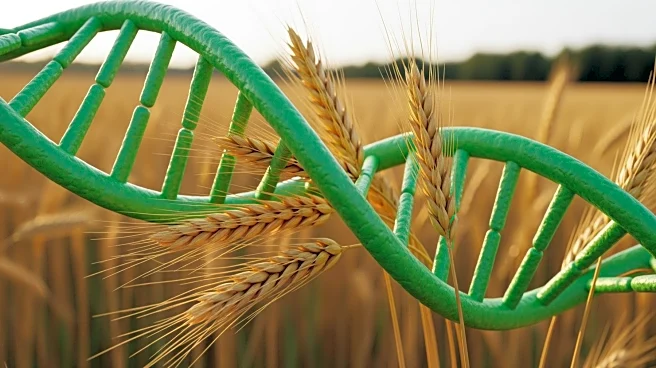What's Happening?
The Centers for Disease Control and Prevention (CDC) has updated its website to suggest that a link between vaccines and autism cannot be ruled out, marking a significant shift from its previous stance that no such link exists. This change aligns with
Health Secretary Robert F. Kennedy Jr.'s views on vaccine safety. Despite the update, CDC scientists claim they did not alter the website, and the Department of Health and Human Services has not disclosed who ordered the change. The update includes an asterisk next to the statement that vaccines do not cause autism, due to an agreement with Republican Sen. Bill Cassidy of Louisiana. This development has sparked debate, as there is no new scientific evidence supporting the claim of a link between vaccines and autism.
Why It's Important?
The CDC's reversal on the vaccine-autism link could have significant implications for public health policy and vaccine uptake. It may fuel vaccine hesitancy among parents and caregivers, potentially leading to lower vaccination rates and increased vulnerability to preventable diseases. The change also highlights the influence of political figures on public health messaging, which could undermine trust in health institutions. The controversy may impact the credibility of the CDC and the Department of Health and Human Services, affecting their ability to effectively communicate health risks and benefits to the public.
What's Next?
The CDC's updated stance may prompt further scrutiny and debate among health professionals, policymakers, and the public. It is likely that advocacy groups and scientific communities will call for clarification and evidence to support the new position. The issue may also lead to legislative discussions on vaccine safety and public health communication strategies. Additionally, the CDC and HHS may face pressure to provide transparency regarding the decision-making process behind the website update.















